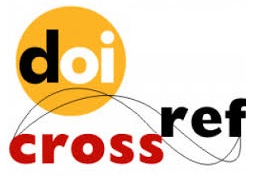Exploring Teachers’ Strategies for Resolving Students’ Learning Difficulties At Primary Level
DOI:
https://doi.org/10.58932/MULI0015Keywords:
Issues, challenges, learning difficulties, inclusive, pragmaticAbstract
The current study focused on the complex nature of instructional strategies for resolving students’ learning difficulties. The purpose of this study is to highlight the issues and challenges during teaching at primary level. Through convenient sampling sixty public primary school teachers were selected. Interpretvist paradigm was utilized to determine the issues and challenges of the teachers. Structured interview scheduled for data collection. All data is interpreted by thematic analyses. The key themes include misconception of ideas in learning, choosing appropriate strategies, lack of motivation, identifying individual needs, shyness, lack of A.V. aids, challenging but fulfilling, acceptance and patience. The study revealed that primary school teachers often demonstrate topic specific strategies in classrooms. Instructional strategies served a variety of goals in response to students’ needs. The findings focused upon effective strategies used as pragmatic approach based on problem solving method of teaching, enquiry method, activity-based method. It is concluded that parents’ teachers’ meetings provide opportunities to the students to express their own learning difficulties. Teachers must have content knowledge for activity-based lesson planning. Use of interactive methods motivates students for learning. To develop a positive learning environment among stakeholders and school management these problems need to be solved precisely.
References
Azungah, (2018). Qualitative research: deductive and inductive approaches to data analysis. Qualitative Research Journal, 18(14), 383-400.
Barz, N., Benick, M., Dorrenbacher-Ulrich, L., & Perels, F. (2024). The effect of digital game-based learning interventions on cognitive, metacignitive, and effective- motivational learning outcomes in school: A meta-analysis. Review of Educational Research, 94(2), 193-227.
Behnamnia, N., Kamsin, A., Ismail, M. A. B., & Hayati, S. A. (2023). A review of using digital game-based learning for preschoolers. Journal of Computer in Education, 10(4), 603-636.
Bressane, A., Zwirm, D., Essiptchouk, A., Saraiva, A. C. V., Campos Carvalho, F. L., Formiga, J. K. & Negri, R. G. (2024). Understanding the role of study strategies and learning disabilities on students’ academic performance to enhance educational approaches: A proposal using artificial intelligence. Computer and Education. Artificial Intelligence, 6(1), 100196.
Dermirdag, S. (2014). Effective teaching strategies and student engagement: Students with learning disabilities. International Journal of Teaching and Education, 25(3), 168.
Erviana, V. Y. (2019). Analysis towards factors of students’ learning difficulties at Muhammadiyah Elementary School in Sayegan sub District. ICLI 2018,221.
Feiker Hollenbeck, A. (2011). Instructional makeover: Supporting the reading comprehensions of students with learning disabilities in discussion-based format. Intervention in School and Clinic, 46(4), 211-220.
Gralewski, J. (2019). Teachers’ beliefs about creative students’ characteristics: A qualitative study. Thinking Skills and creativity, 31(1), 138-155.
Hourigan, M., & Leavy, A. M. (2023). Elementary teachers’ experiences of engaging with teaching through problem solving using lesson study Mathematics Education Research Journal, 35(4), 901-927.
Huang, G.D. (2018). Trial of prazosin for post traumati stress disorder in military veterans. New England journal of Medicine, 378(6), 507-517.
Kocsis, J. (2016). Primary teachers’ knowledge about learning disabilities. Nipissing University, Canada.
Ling, A. N. B., & Mahmud, M. S. (2023). Challenges of teachers when teaching sentence –based mathematics problem-solving skills. Frontiers in Psychology, 13(1), 1074202.
Samarawickrema, G., & Cleary, K. (2021). Block mode study: Opportunities and challenges for a new generation of learner in Australian University. Student Success, 12(1), 13-23.
Saputri, S., Ruoyyah, S., & Rohaeti, E. E. (2024). Analysis of student difficulties in learning Mathematics in elementary school lower grades. Journal of Educational Experts (JEE), 7(2), 50-63.
Saravanabhavan, S., & Saravanabhavan, R. C. (2010). Knowledge of learning disability among pre and in service teachers in India. International Journal of Special Education, 25(3), 132-138.
Sari, G. R., Santihastuti, A., & Wahjuningsih, E. (2020). Students Perception on reading Comprehensions Problems in Narrative Text. LLT journal: A Journal on language and language Teaching, 23(2), 342-353.
Senhamarai, S. (2018) Interactive teaching strategies. Journal of Applied and Advance Research, 3(1), 36-S38.
Syed, S., Yousef, T., Al-Khatib, K., Janicke, S., & Potthast, M. (2021). Summary Explorer: Vulization the state of the Art in text Summarization or Xiv preprint arXiv :2108.01879.
Yang, D., & Baldwin, S. J. (2020) Using technology to support students learning in an integral STEM learning environment. International Journal Technology in education and science, 33(1)278-836
Zhan, Z., Tong, Y., Lan, X., & Zhong, B. (2024). A systematic literature review of game-based learning in Artificial Intelligence education. Interactive Learning Environments, 32(3), 1137-1158.
Zhang, L., & Ma, Y. (2023). A study of the impact of project-based learning on students learning effects: A meta-analysis study. Frontiers in Psychology, 14(1) 1202728.
Zhang, R., & Zou, D. (2024). Self-regulated second language learning: A review of types and benefits of strategies, modes of teachers support, and pedagogical implications. Computer Assisted Language Learning, 37(4), 720-765.








